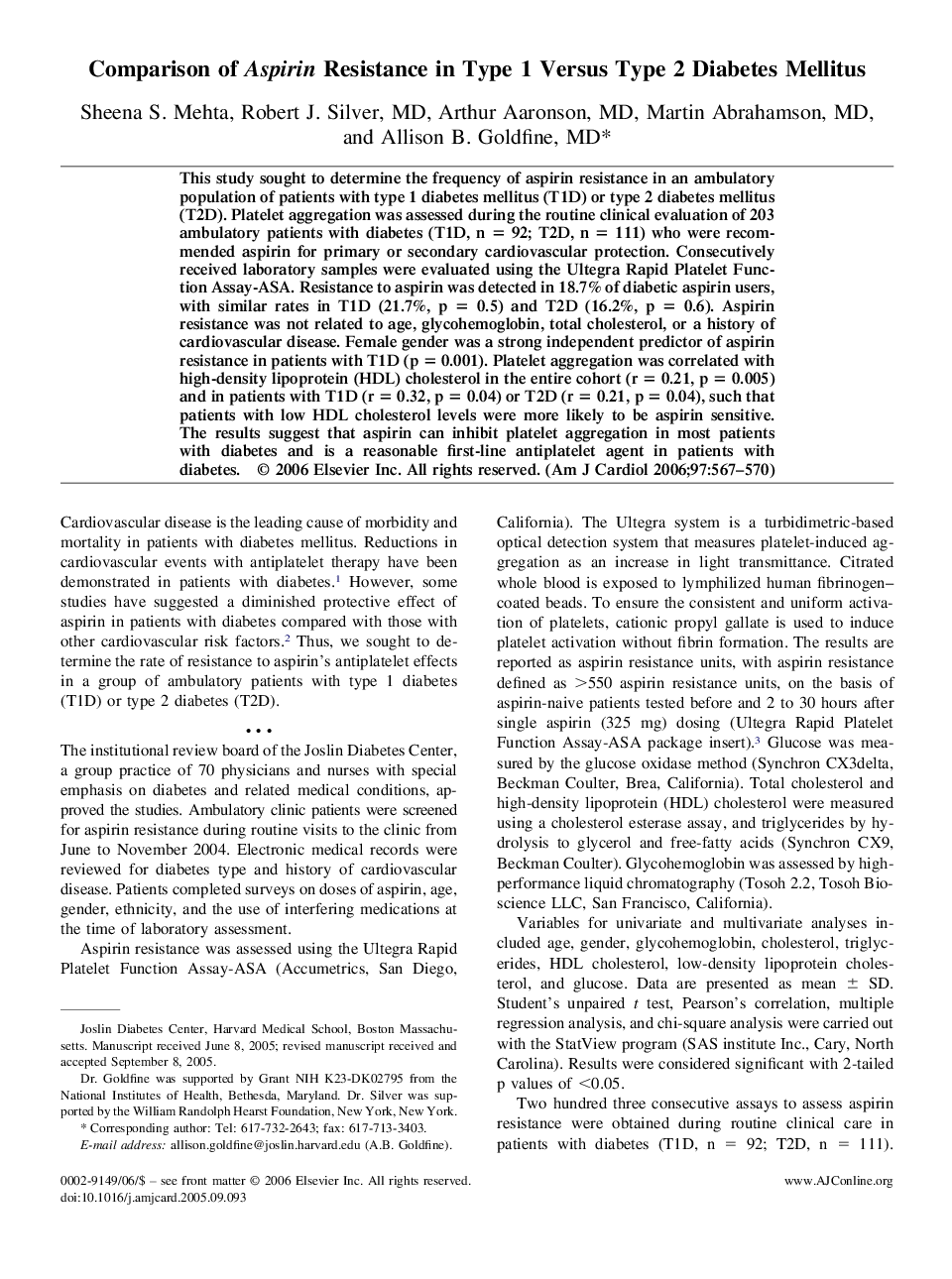| Article ID | Journal | Published Year | Pages | File Type |
|---|---|---|---|---|
| 2862301 | The American Journal of Cardiology | 2006 | 4 Pages |
This study sought to determine the frequency of aspirin resistance in an ambulatory population of patients with type 1 diabetes mellitus (T1D) or type 2 diabetes mellitus (T2D). Platelet aggregation was assessed during the routine clinical evaluation of 203 ambulatory patients with diabetes (T1D, n = 92; T2D, n = 111) who were recommended aspirin for primary or secondary cardiovascular protection. Consecutively received laboratory samples were evaluated using the Ultegra Rapid Platelet Function Assay-ASA. Resistance to aspirin was detected in 18.7% of diabetic aspirin users, with similar rates in T1D (21.7%, p = 0.5) and T2D (16.2%, p = 0.6). Aspirin resistance was not related to age, glycohemoglobin, total cholesterol, or a history of cardiovascular disease. Female gender was a strong independent predictor of aspirin resistance in patients with T1D (p = 0.001). Platelet aggregation was correlated with high-density lipoprotein (HDL) cholesterol in the entire cohort (r = 0.21, p = 0.005) and in patients with T1D (r = 0.32, p = 0.04) or T2D (r = 0.21, p = 0.04), such that patients with low HDL cholesterol levels were more likely to be aspirin sensitive. The results suggest that aspirin can inhibit platelet aggregation in most patients with diabetes and is a reasonable first-line antiplatelet agent in patients with diabetes.
